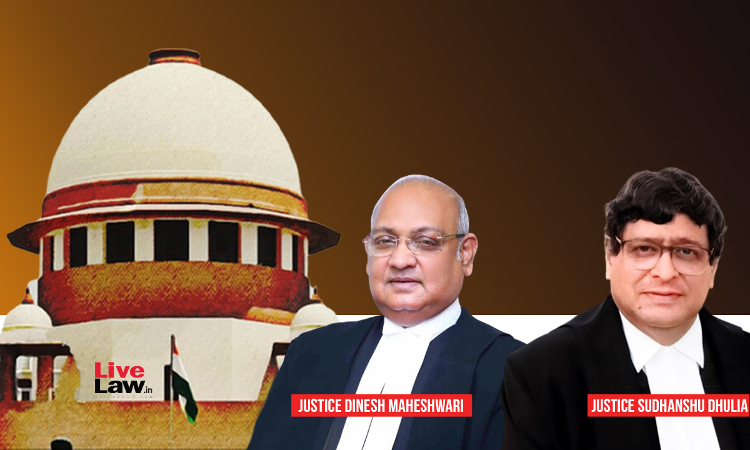"Burden To Prove Mental Incapacity Is On The Defence" : Supreme Court Upholds Conviction Of Man Accused Of Killing His Two Sons
Ashok KM
3 Jan 2023 9:25 AM IST

Next Story
3 Jan 2023 9:25 AM IST
Rejecting his plea of mental incapacity, the Supreme Court upheld the conviction of a man accused of killing his two sons."Where the accused is charged of murder, the burden to prove that as a result of unsoundness of mind, the accused was incapable of knowing the consequences of his acts is on the defence", the bench of Justices Dinesh Maheshwari and Sudhanshu Dhulia observed while dismissing...
